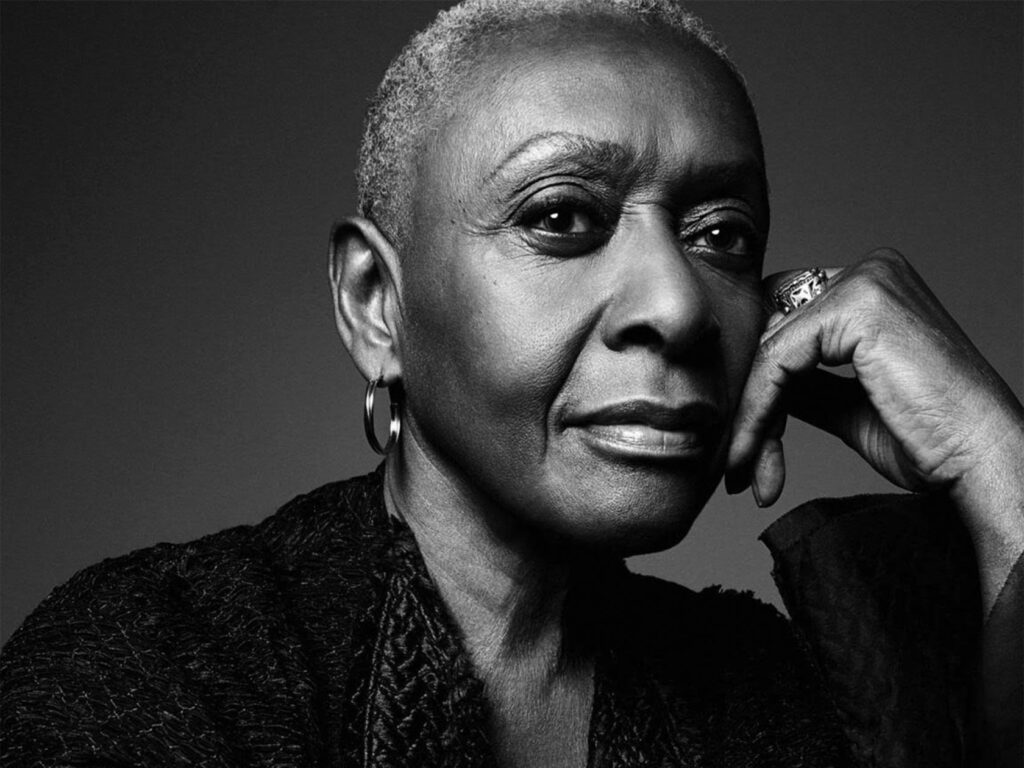Bethann Hardison brings fashion forward
Groundbreaking model, advocate considers past and future of fashion industry in conversation at MFA Boston

Boston is known for many things, but fashion is not one of them. That’s why Bethann Hardison’s presence at the Museum of Fine Arts on May 4 was a sartorial delight. Hardison is a model, former modeling agent and fashion diversity advocate who spoke at the museum as part of the Ruth and Carl J. Shapiro Celebrity Lecture series. Hardison was in conversation with theo tyson, the museum’s Penny Vinik Curator of Fashion Arts, discussing a range of topics from her new documentary “Invisible Beauty” to her advocacy work and her life abroad in Mexico and Morocco.
Dubbed the “Godmother of Fashion” by Tracee Ellis Ross in the film “Invisible Beauty,” Hardison’s multi-hyphenate career in fashion began in the ‘60s. In 1973 she modeled in the notable Battle of Versailles fashion show. The show was initially planned as a fundraiser to restore the palace. However, it morphed into a turning point for American fashion when French and American designers went head-to-head displaying their designs in an attempt to woo the audience. Ultimately Team America took home the crown as the crowd favorite. From then on American designers were taken seriously by fashion’s elite.
Hardison briefly mentioned the Versailles show that catapulted her into the public eye in her witty and humble manner. She also discussed her September 2013 Diversity Coalition letter, which called out the fashion industry’s lack of African American models on the runway in New York, Paris, Milan and London. She said, “I was going to try to help make the industry aware of their actions. I named each one of these regions’ designers who were faulty of having either one or two models or none at all.” She said there were anywhere from 30 to 40 models per show.
Hardison, flanked by supermodels Naomi Campbell and Iman, formed the Diversity Coalition in 2013, a group of mostly anonymous African American fashion-industry professionals. Hardison explained the group was anonymous so members would not fear retaliation while calling out their employers and peers in the industry. The open letter demanded immediate action from designers and fashion councils to include more diversity on their runways and advertisements.
Hardison was clear that she isn’t a revolutionary. The self-described advocate — not activist — said, “I poke the bear and the person I give credit to is the bear.” This statement was met with a brief pause of consideration, followed by applause from the audience.
The stylish house was packed. Tyson agreed during a phone interview when they mentioned how pleased they were to see the audience dressed up. Throughout the interview tyson referred to the model-advocate as Ms. Hardison with noticeable reverence. Their exhilaration from interviewing one of their idols was still palpable a day later.
Tyson hopes events like this will entice people to care about the importance of beauty and putting their best foot forward every day. “There’s a lot more to life than khakis and a Patagonia vest.” They continued, “You can show up as your full self at the bank, the museum, the accounting firm, the doctor’s office, you know, fill in the blank. Part of that is how you show up empowers other people to show up as themselves as well.”
Toward the end of the conversation tyson asked Hardison what she wanted her legacy to be. Hardison said, “All I want to do is leave here as someone who had great compassion, kindness and be a guide for people.”







